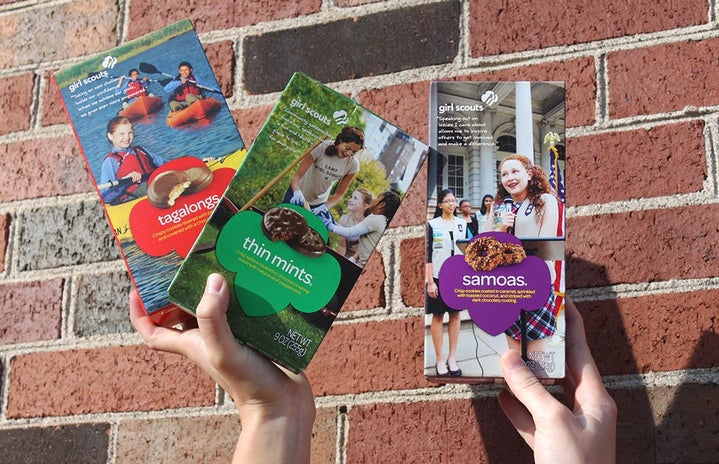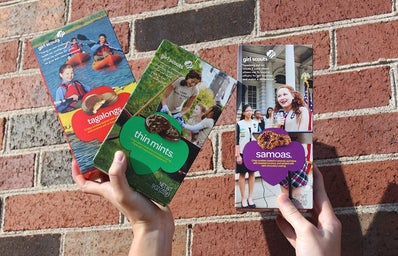I’ve always been a businesswoman. As a young Girl Scout, I worked hard from January to March, selling hundreds of cookie boxes each season. I went from door to door in my neighborhood, enthusiastically asking my neighbors to preorder Thin Mints, Tagalongs, Samoas and whatever new varieties were being offered.
My troop spent long, cold hours outside of the local Walmart for our booth sales. I was unafraid to wear the Thin Mint costume, attracting attention and bombarding unsuspecting customers with “would you like to support the Girl Scouts by buying some cookies?” Buyers came to the store for paper towels and Diet Coke, not an overpriced package of artificial dessert. I would guess that some people threw us a few dollars just so we would leave them alone.

In high school, I carried a heavy case of cookies through the halls. My school sales were a hustle— plenty of hungry, exhausted students had a few dollars burning a hole in their pocket. As the school’s cookie “dealer,” peers would hunt me down, hoping that I still had a remaining box of their favorite flavor.
My mom housed over 10,000 boxes of cookies each year to distribute to other local Girl Scout troops. Our garage turned into a mini-warehouse, and Mom was the “boss babe” behind the operation. She became a local hero whenever a Brownie troop was having a “cookie emergency” at their booth sale. Their troop leader would frantically report that they needed more Samoas “ASAP!” Some parent’s minivan would soon arrive in our driveway for a quick restock.
I learned selling techniques by earning “cookie business” and “financial literacy” badges. Was I being groomed for a future of selling detox teas, fancy supplements and sketchy skincare products? It isn’t too far-fetched to find some similarities between Girl Scout cookie sales and multi-level marketing (MLM) schemes.

In an MLM company, you earn money by selling your product and by recruiting more people to join, whose sales you earn a commission from. The FTC describes that “your recruits, the people they recruit, and so on, become your sales network, or ‘downline.’ If the MLM is not a pyramid scheme, it will pay you based on your sales to retail customers, without having to recruit new distributors.”
The Girl Scouts have plenty of recruitment efforts to get girls to join, and the troops only earn a small cut from each box of cookies sold. Selling more boxes is incentivized for younger troops—this year, girls in my area have the opportunity to earn a kayak, customized Vans shoes, vlogging equipment and more. Because of these prizes, the troop only earns about 55 cents for each $4 box (these numbers vary based on location). Older troops can skip the bonus prizes and take a slightly larger cut, earning 60-65 cents.
Where does the profit go? The national organization, GSUSA, makes about $2 per box and the local council (a large group of troops within a region) also makes a little cash. This system is reminiscent of a “downline” within an MLM, considering the existing distributors (GSUSA and the council) earn a portion of the sales for the troops they’ve recruited. The troop makes very little money from each box sold, kind of like those sellers stuck at the bottom of the MLM sales pyramid.
If you see a booth sale this cookie season and don’t actually want to buy anything (for some strange reason), you can still help out a troop by just giving a donation. The troop gets to keep the entire donation, which will help them to fund field trips, volunteering, badges and more.

At the end of the day, it is unfair to call the Girl Scout cookie sale an MLM or pyramid scheme. While selling cookies is obviously encouraged, troops aren’t required to sell a single box during the season. Troop recruitment doesn’t occur for the sole purpose of growing the “cookie entrepreneur” pyramid.
However, it is still possible that a former Girl Scout could make the jump from cookies to a less legitimate sales endeavor. If I was good at peddling Tagalongs in my youth, why wouldn’t I be able to successfully sell fat-burning coffee with other “boss babes” on Facebook? GSUSA should add a “How to Spot a Pyramid Scheme/MLM” portion to their business-themed badges so that girls can safely gain that entrepreneurial spirit.




